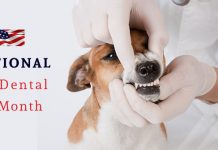Welcoming a new puppy into your home is an exciting journey filled with joy, laughter, and a touch of chaos. As a first-time puppy owner, you might find yourself overwhelmed by the sheer amount of information available on how to best care for your furry friend. Ensuring your puppy’s health and happiness is crucial during these early stages, setting the foundation for a long, thriving companionship. In this guide, we’ll explore essential health care tips tailored for new puppy parents, helping you navigate this adventure with confidence and love. From vaccinations to nutrition and everything in between, we’re here to support you in giving your puppy the best start in life. So, grab a cozy spot, maybe with your playful pup at your feet, and let’s dive into the world of puppy health care together.
Understanding Your Puppys Nutritional Needs
Ensuring your puppy receives the right nutrients is crucial for their growth and development. Puppies have different nutritional needs compared to adult dogs, requiring a diet rich in proteins, fats, and essential vitamins. Proteins support muscle development and repair, while fats provide energy and help absorb vitamins. Opt for a high-quality puppy food that meets these requirements and consult your vet to tailor the diet to your puppy’s specific breed and size.
When choosing food, look for labels that indicate a complete and balanced diet, specifically formulated for puppies. Here are some key components to consider:
- Calcium and Phosphorus: Essential for strong bones and teeth.
- DHA: Supports brain development and vision.
- Antioxidants: Boost the immune system and overall health.
Feeding schedules are equally important. Establish a routine with regular feeding times to help regulate your puppy’s digestion and metabolism. Typically, puppies under six months should be fed three to four times a day, gradually transitioning to twice a day as they grow older. Remember, consistency is key, so stick to a feeding plan that suits your puppy’s lifestyle and energy levels.

Creating a Safe and Stimulating Environment
Ensuring that your puppy thrives begins with crafting an environment that is both secure and engaging. Puppies are naturally curious, so it’s essential to puppy-proof your home. Start by removing any hazardous items such as electrical cords, small objects that could be swallowed, and toxic plants. Consider using baby gates to restrict access to certain areas and to prevent any unexpected adventures.
Beyond safety, stimulation is key to a puppy’s development. Create a space filled with interactive toys and puzzles that challenge their minds and keep them entertained. Regular playtime not only strengthens your bond but also helps expend their boundless energy. It’s also beneficial to rotate toys weekly to maintain their interest and curiosity.
Additionally, providing a designated resting area helps your puppy feel secure and establishes a routine. Choose a quiet corner with a cozy bed where they can retreat and relax. This spot will become their sanctuary, offering comfort amidst the new experiences of their growing world. By combining safety with stimulation, you’re setting the foundation for a happy and healthy puppy life.

Establishing a Consistent Veterinary Care Routine
Ensuring your puppy receives regular veterinary care is crucial to their long-term health and happiness. A consistent routine not only helps in early detection of potential health issues but also keeps vaccinations and preventative treatments up to date. Here are some key steps to help you establish a routine:
- Schedule Regular Check-Ups: Start by booking an initial health examination with your vet, then follow their recommendations for subsequent visits. Typically, puppies need to visit the vet every 3-4 weeks until they are 16 weeks old.
- Stay on Top of Vaccinations: Ensure your puppy receives all core vaccines, such as distemper, parvovirus, and rabies. Discuss with your vet about additional vaccines based on your location and lifestyle.
- Maintain a Parasite Prevention Plan: Regularly administer flea, tick, and worm preventatives. This will protect your puppy from common parasites that can affect their health.
Building a good relationship with your veterinarian is just as important. This partnership will provide you with valuable insights and advice tailored to your puppy’s specific needs. Remember, a healthy puppy is a happy puppy, and consistent veterinary care is the foundation of that well-being.
















